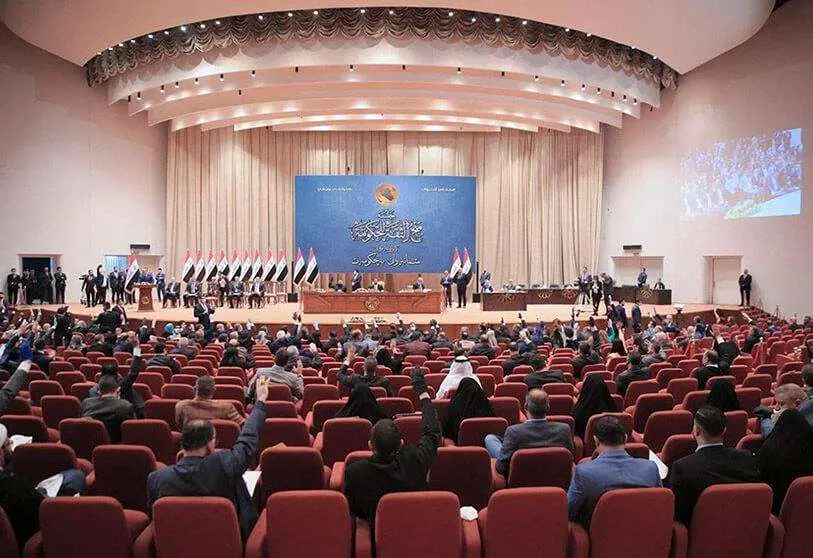Iraq's parliament fails for the third time to elect a president

Several parliamentary groups, led by the group representing pro-Iranian militias, failed on Wednesday in Iraq's third attempt to elect the country's new president by boycotting the parliamentary session and preventing the quorum required to hold the vote.
The House of Representatives had to turn the extraordinary session it had called into an ordinary session after failing to reach the required two-thirds of lawmakers present to elect the next head of state, the congressional communications department said.
This new boycott, the third in two months, prolongs the political paralysis in Iraq almost six months after last October's parliamentary elections and further delays the formation of a government, as it requires the election of a new president to be entrusted to the prime ministerial candidate proposed by the majority group.
Among those blocking the quorum are the Coordination Framework, an alliance led by the party representing the Popular Multitude, a Shiite militia grouping, mostly pro-Iranian, as well as the Patriotic Union of Kurdistan (UPK) of the incumbent president, Barham Saleh.
These groups want to re-establish a consensus government, with quotas of power for all parties, but the Sadrist Bloc, which won the October elections with just 73 of the 329 seats in the legislature, insists on forming a parliamentary majority government.

To this end, the formation of the popular Shiite cleric Muqtada al Sadr has formed with the Kurdistan Democratic Party (KDP) and the Alliance for Sunni Sovereignty the coalition Alliance to Save the Homeland, which proposes the Kurdistan Autonomous Region's security minister, Rebar Ahmed, as its presidential candidate.
Despite the parliamentary deadlock, which threatens to further erode Iraq's fragile political stability, Al Sadr insists on majority rule: 'I will not agree with you, consensus means the end of the country (...). No to consensus in all its forms," he said in a message on his Twitter account after the new suspension of the vote.
The first call to elect the president, on 7 February, was boycotted by most of the parliamentary groups after the temporary suspension of the candidate proposed by this alliance, former Finance Minister Hoshyar Zebari, for a long-standing corruption case, and the second, last Saturday, by the same groups as on Wednesday.
According to the Constitution, once the legislature was inaugurated, which occurred on 9 January, Parliament had a period of 30 days to elect the President of the Republic who, according to the sectarian system established in Iraq after the fall of dictator Saddam Hussein, must be a Kurd.










